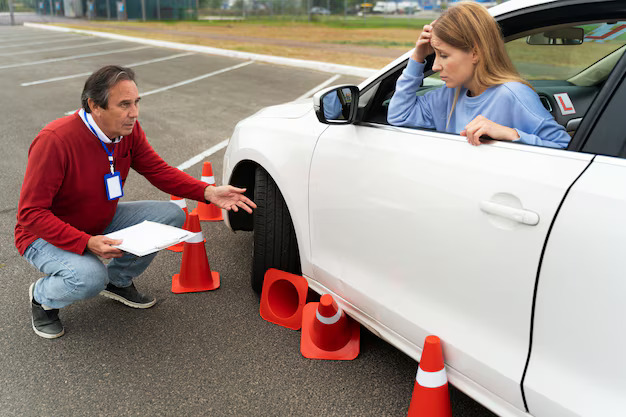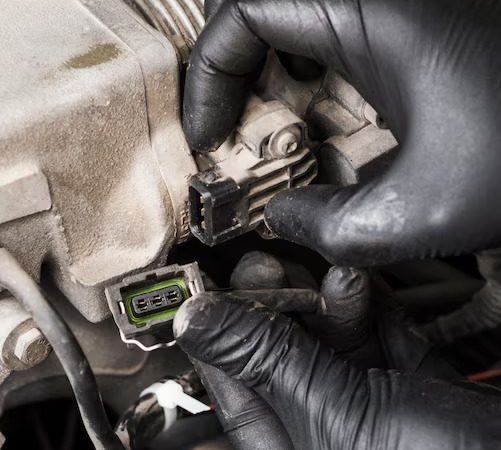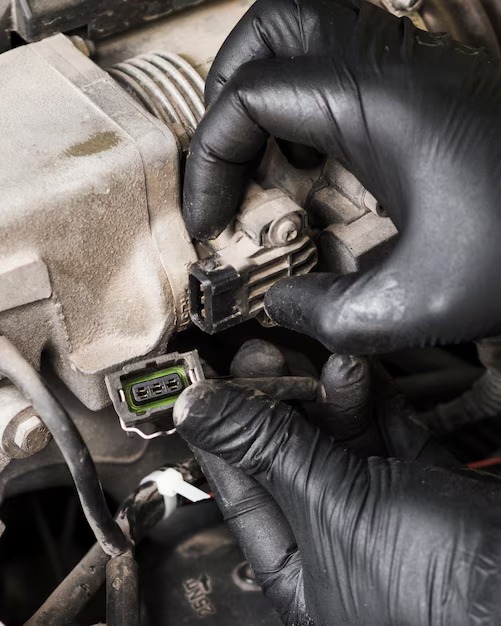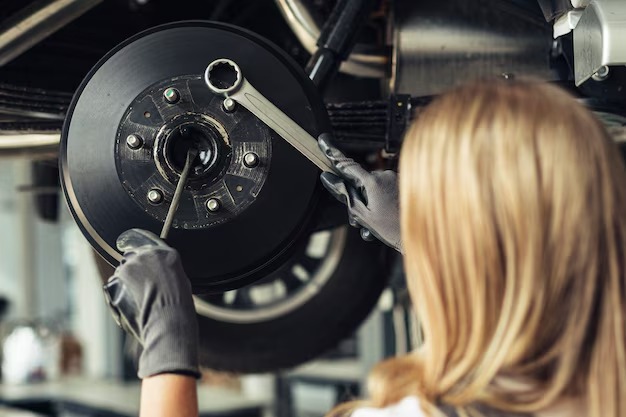Car Shake When Accelerating Coast

Are you troubled by unsettling vibrations permeating through your vehicle as you press the gas pedal? Discovering the underlying causes of such persistent shakes during acceleration is crucial to ensuring a smooth and enjoyable driving experience. Uncovering the reasons behind this automotive phenomenon necessitates a deeper understanding of the intricate mechanics at play.
Unveiling the Culprits
In your quest to unravel the mystery behind your car’s unsteady behavior, it is imperative to explore various factors that could be at fault. One potential source of annoyance lies within the wheels, where imbalances or misalignments can wreak havoc on your driving experience. These issues can cause the vehicle to vibrate when accelerating, undermining not only your comfort but also the overall performance.
Enter the Realm of Suspension
Among the many components that contribute to a smooth ride, the suspension system plays a crucial role in mitigating vibrations on the road. If certain elements within this intricate system, such as worn-out shocks or struts, lose their ability to effectively dampen vibrations, your car can exhibit distressing shaking sensations during acceleration. A thorough examination of these suspension components is essential in remedying this worrisome issue.
Delving Deeper into Mechanical Malfunctions
While imbalances and suspension-related problems stand as common culprits, several mechanical maladies can also bring about unsettling vibrations while accelerating. Faulty engine mounts, draped in the task of securing the engine to the chassis, can succumb to wear and tear over time, leading to abnormal movements and subsequent vibrations. Additionally, issues with the drivetrain, such as worn-out universal joints or damaged CV axles, can contribute to the discomforting shake within your vehicle.
The Path to a Smooth Ride
Discovering why your car shudders when accelerating requires a meticulous investigation into various potential causes. Exploring the realms of wheel imbalances, suspension troubles, and mechanical malfunctions will pave the way to address the issue at hand effectively. Armed with a deeper understanding, you can embark on the journey to restore the harmonious and seamless driving experience you deserve.
Engine Misfire: The Culprit Behind Shaky Acceleration mount
Engine misfire can be identified as the main cause of the unsettling vibrating sensation expe rienced when accelerating. This issue occurs when the combustion process in one or more cylinders of the engine fails to occur properly, disrupting the smooth functioning of the vehicle. Engine misfires can lead to a range of problems, including decreased performance, increased fuel consumption, and potential damage to other engine components.
There are several factors that can contribute to engine misfires. The most common culprits include faulty spark plugs, ignition coils, fuel injectors, or a malfunctioning engine control unit (ECU). When any of these components fail to function as intended, the result is an inconsistent combustion process, which leads to the shaky acceleration experienced while driving.
One of the primary causes of engine misfire is worn or deteriorated spark plugs. Spark plugs play a crucial role in igniting the air-fuel mixture in the engine cylinders. Over time, the electrodes on the spark plugs wear out, causing them to generate weak sparks or fail to produce sparks altogether. This leads to incomplete combustion and, consequently, the shaking sensation experienced when accelerating.
Another common cause of engine misfire is malfunctioning ignition coils. These coils are responsible for supplying a high voltage current to the spark plugs, which in turn generate the sparks. If an ignition coil fails, it can result in weak sparks or complete lack of spark, causing the engine to misfire and the car to shake during acceleration.
Fuel injectors are also a potential culprit behind engine misfire. These injectors deliver fuel to the engine cylinders in a precise and timed manner. When fuel injectors become clogged or develop a malfunction, they may not spray the required amount of fuel into the cylinders, leading to an imbalanced air-fuel mixture and the subsequent engine misfires.
Lastly, a malfunctioning engine control unit (ECU) can contribute to engine misfire. The ECU is responsible for controlling various engine functions, including fuel injection timing and ignition timing. If the ECU detects a fault or receives incorrect data from different sensors, it may not provide the accurate commands to the engine components, resulting in misfires and shaky acceleration.
In conclusion, engine misfire can be attributed to a range of factors, including faulty spark plugs, ignition coils, fuel injectors, or a malfunctioning engine control unit. Identifying and addressing these issues promptly is essential to ensure smooth acceleration and prevent further damage to the vehicle’s engine.
Fuel System Issues: Could It be the Reason for the Shaking?
A vehicle’s fuel system plays a crucial role in its overall performance, ensuring that the engine receives an adequate supply of fuel for combustion. However, when fuel system issues arise, it can lead to various problems, including a noticeable shaking sensation while accelerating. Understanding the potential fuel system problems can help diagnose and resolve this unsettling issue.
Common Fuel System Problems
One possible culprit behind the shaking during acceleration is a clogged fuel filter. The fuel filter is responsible for removing impurities and debris from the fuel before it reaches the engine. Over time, it can become clogged, obstructing the flow of fuel and causing a disruption in the combustion process. This can result in a rough running engine and vibrations felt throughout the vehicle.
Another potential issue lies within the fuel injectors. Fuel injectors are responsible for delivering fuel in precise amounts to the engine cylinders. When they become clogged or malfunctioning, they can disrupt the fuel spray pattern, leading to an imbalance in the combustion process. This imbalance can cause the engine to vibrate during acceleration.
Solutions for Fuel System Issues
If you suspect a fuel system problem is causing your vehicle to shake during acceleration, it is advisable to consult a professional mechanic. They can perform a thorough inspection and diagnostic tests to pinpoint the exact issue. In the case of a clogged fuel filter, it may need to be replaced. Fuel injectors, on the other hand, might require cleaning or replacement, depending on the severity of the problem.
Regular maintenance, such as scheduled fuel system cleanings and filter replacements, can help prevent these issues from occurring. Additionally, using high-quality fuel and avoiding dirty or contaminated fuel sources can also contribute to the longevity and optimal performance of your fuel system.
In conclusion, fuel system problems, such as a clogged fuel filter or malfunctioning fuel injectors, can indeed be the reason behind the shaking sensation experienced during acceleration. Consulting a professional mechanic and staying proactive with fuel system maintenance can help address and resolve these issues, ensuring a smoother and safer driving experience.
Transmission Troubles: How Faulty Gears Can Cause Shaking While Accelerating steering wheel bearing
One of the potential causes of shaking when accelerating in a vehicle is related to transmission issues, particularly faulty gears. The gears in a car’s transmission are responsible for transferring power from the engine to the wheels, allowing the vehicle to move. However, if any of these gears become faulty or worn out, it can lead to shaking or vibrations while accelerating.
Understanding Transmission Gears
A car’s transmission consists of various gears that work together to provide the necessary torque and speed required for different driving conditions. These gears include the main input shaft gear, lay gears, countershaft, and output shaft gear. When you accelerate, these gears engage and disengage at different speeds, ensuring the smooth transfer of power throughout the transmission system.
However, over time, the gears can wear out due to constant use, lack of maintenance, or other mechanical issues. When a gear becomes faulty, it can disrupt the smooth transfer of power and cause the car to shake while accelerating. This shaking sensation is often more noticeable during initial acceleration or when shifting gears.
Common Causes of Faulty Gears
There are several reasons why gears can become faulty in a car’s transmission. One common issue is worn-out gear teeth, which can occur due to prolonged usage or inadequate lubrication. When the gear teeth are worn down, they no longer mesh properly, leading to vibrations and shaking during acceleration.
Another common cause of faulty gears is a damaged synchromesh mechanism. The synchromesh mechanism is responsible for synchronizing the speeds of the gears during gear shifting. If this mechanism is damaged or worn out, the gears may not engage smoothly, resulting in shaking or jerking movements.
- Worn-out or damaged clutch disc
- Insufficient transmission fluid
- Malfunctioning transmission mounts
- Improperly adjusted shift linkage
To diagnose and address transmission issues related to faulty gears, it is crucial to consult a qualified mechanic or transmission specialist. They will have the expertise to inspect the gears, identify the specific problem, and carry out the necessary repairs or replacements to restore the smooth operation of your vehicle’s transmission.
Suspension Problems: Understanding the Impact on Acceleration
When your vehicle experiences a shaky sensation during acceleration, it may be caused by a variety of suspension issues. By comprehending the influence that suspension problems can have on the acceleration process, you can gain a better understanding of why your car shakes and take appropriate action to address the underlying causes.
One common suspension problem that can impact acceleration is worn-out or damaged shock absorbers. These crucial components are responsible for dampening the effects of road bumps and maintaining stability while driving. When shock absorbers are worn or faulty, they may struggle to effectively control the movements of the suspension system, leading to a shaky sensation during acceleration.
Another potential culprit is worn-out or damaged bushings. Bushings are rubber or polyurethane components that provide cushioning and stability between different suspension parts. Over time, bushings can degrade or become damaged, compromising their ability to absorb shocks and maintain proper alignment. As a result, acceleration forces can cause the affected components to shift and vibrate, resulting in a noticeable shake.
Uneven tire wear can also contribute to shaky acceleration. When tires are worn unevenly, it can disrupt the balance of the vehicle and lead to vibrations during acceleration. This imbalance can be caused by various factors, including improper tire pressure, misaligned wheels, or worn-out suspension components. Regular tire maintenance and alignment checks are essential to prevent such issues.
Lastly, damaged or worn-out engine mounts can affect acceleration and cause shaking. Engine mounts are responsible for securing the engine to the chassis and minimizing vibrations. If these mounts become worn or damaged, they may fail to keep the engine properly aligned, leading to increased vibrations and shaking during acceleration.
In summary, suspension problems can have a significant impact on acceleration and result in a shaky driving experience. Worn-out or damaged shock absorbers, bushings, uneven tire wear, and engine mount issues are all potential contributors. Regular maintenance and inspections can help identify and address these problems, ensuring a smoother and more stable driving experience.
Wheel and Tire Imbalances: The Hidden Causes of Shaky Acceleration
In the realm of automotive mysteries, encountering a shaky sensation while accelerating is undeniably an annoyance. Though the reasons for such vibrations can stem from various factors, one often overlooked culprit is wheel and tire imbalances. These hidden causes can wreak havoc on the smoothness of acceleration, potentially turning a pleasurable driving experience into an unsettling one.
The Impact of Wheel and Tire Imbalances
While cruising down the road, it is imperative for wheels and tires to maintain a perfect equilibrium. Even a slight disruption in this balance can lead to unwelcome vibrations during acceleration. Wheel imbalances occur when the distribution of weight around the tire and rim is uneven, often caused by improperly mounted wheels or missing wheel weights.
Tire imbalances, on the other hand, can stem from irregular wear, bulges, or even manufacturing defects. These imbalances can generate vibrations when accelerating, destabilizing the overall performance of the vehicle and potentially compromising safety.
Identifying and Resolving Wheel and Tire Imbalances
Recognizing the signs of wheel and tire imbalances is crucial for maintaining a smooth driving experience. Some common indicators include steering wheel vibrations, uneven tire wear, and a general sense of unease during acceleration.
Fortunately, resolving these imbalances is relatively straightforward. A professional wheel balance and tire rotation can rectify the uneven distribution of weight, allowing the wheels and tires to spin harmoniously. Additionally, inspecting tires regularly for irregular wear patterns, bulges, and embedded debris can help identify potential issues before they escalate.
In summary, the secret culprits behind a shaky acceleration often lie in the unseen realms of wheel and tire imbalances. Paying attention to these hidden causes and promptly addressing any imbalances can help ensure a smoother, safer, and more enjoyable driving experience.
Ignition System Malfunction: Exploring the Effects on Acceleration
When your vehicle experiences a disruption in its ignition system, it can have significant consequences on its acceleration capabilities. The ignition system plays a crucial role in providing the necessary spark to ignite the air-fuel mixture in the engine, enabling smooth and efficient combustion. However, when malfunctions occur within this vital component of your vehicle, it can lead to a range of issues affecting acceleration.
One of the primary effects of an ignition system malfunction on acceleration is a noticeable decrease in power. When the ignition system fails to deliver a strong and consistent spark to the spark plugs, it results in incomplete combustion. This incomplete combustion leads to a reduction in the power generated by the engine, causing your car to shake and struggle when accelerating.
Furthermore, an ignition system malfunction can also disrupt the timing of the spark delivery. Timing refers to the precise moment at which the spark should ignite the air-fuel mixture within the engine. When the timing is off, either too soon or too late, the combustion process becomes irregular, leading to an uneven acceleration experience. As a result, you may feel your vehicle shaking and vibrating when you step on the accelerator.
In addition to power loss and irregular timing, an ignition system malfunction can also result in misfires. Misfires occur when the spark plug fails to ignite the air-fuel mixture in one or multiple cylinders. This can happen due to various issues, such as a faulty spark plug, a damaged ignition coil, or a clogged fuel injector. Misfires can cause the engine to stumble and shake during acceleration, as the misfiring cylinders disrupt the smooth operation of the engine.
In conclusion, the ignition system plays a vital role in ensuring smooth and efficient acceleration. When this system malfunctions, it can lead to a range of effects on acceleration, including power loss, irregular timing, and misfires. If you notice your car shaking or struggling when accelerating, it is crucial to have your ignition system inspected and repaired promptly to restore optimal performance.
Q&A: Car shakes when accelerating but not when coasting
What are some common reasons why a car shakes when you accelerate?
A car can shake when you accelerate due to issues such as unbalanced tires, worn-out wheel bearings, or problems with the engine or transmission.
What should you do if you notice your car shaking when you accelerate?
If you notice your car shaking when you accelerate, it’s best to take your car to a mechanic as soon as possible to diagnose and resolve the issue.
Can problems with the wheel alignment cause vibrations in the car?
Yes, problems with the wheel alignment can cause vibrations in the car, especially at higher speeds.
What might cause a car to start shaking when you let off the gas?
Shaking in the car when you let off the gas could be caused by issues such as worn-out brake components or warped brake rotors.
When should you press on the brakes if you notice shaking in the car?
If you notice shaking in the car, especially when braking, it’s important to press on the brakes and slow down gradually to ensure safety.
What steps should you take if you notice your car shaking at around 55 mph?
If your car starts shaking at around 55 mph, you’ll need to take your car to a mechanic to inspect components such as the wheel bearings, CV joints, and brake system.
What could cause shaking in the steering wheel when driving at higher speeds?
Shaking in the steering wheel at higher speeds could be caused by issues such as unbalanced tires, loose lug nuts, or problems with the front end components.
What might happen if you drive your car with a broken motor mount?
If you drive your car with a broken motor mount, it can cause excessive engine movement, leading to shaking and vibrations throughout the vehicle.
How can you determine if the shaking in your car is due to problems with the front or rear wheels?
You can determine if the shaking in your car is due to problems with the front or rear wheels by observing whether the shaking is felt primarily in the steering wheel or throughout the whole car.
What might cause shaking in the car when driving over uneven surfaces or hitting obstacles?
Shaking in the car when driving over uneven surfaces or hitting obstacles could be caused by damage to components such as the front axles, CV joints, or suspension system.
What are some potential reasons why a car will shake while driving?
A car may shake while driving due to various reasons such as unbalanced tires, worn-out wheel bearings, or problems with the engine or transmission.
At what speed might you start to notice your car shaking?
You might start to notice your car shaking at speeds around 20 mph or higher, especially if there are issues with the wheels or suspension components.
When might you experience shaking in the car while driving at 75 mph?
Shaking in the car at 75 mph could indicate issues such as unbalanced tires or problems with the wheel bearings or suspension components.
What could cause shaking in the car when you’re coasting?
Shaking in the car when coasting could be caused by issues such as worn-out wheel bearings, unbalanced tires, or problems with the CV joints.
What steps should you take if you notice your car shaking while driving?
If you notice your car shaking while driving, it’s important to have a mechanic inspect the vehicle to diagnose and resolve the issue.
What might cause shaking in the car when you accelerate?
Shaking in the car when accelerating could be due to issues such as worn-out CV joints, problems with the engine or transmission mounts, or unbalanced tires.
What are some potential consequences of driving with bad wheel bearings?
Driving with bad wheel bearings can lead to excessive wear on the tires, uneven tire wear, and further damage to other components of the wheel assembly.
What could happen if there is a loose wheel on the car?
If there is a loose wheel on the car, it could cause the wheel to wobble or shake, leading to unsafe driving conditions and potential damage to other components.
How can you determine if the shaking in your car is coming from the front or rear wheels?
You can determine if the shaking is coming from the front or rear wheels by observing whether the shaking is felt primarily in the steering wheel (indicating front wheel issues) or throughout the whole car (indicating rear wheel issues).
What are some common causes of shaking in the car when driving over uneven surfaces?
Shaking in the car when driving over uneven surfaces could be caused by issues such as worn-out suspension components, damaged CV joints, or problems with the wheel alignment.






